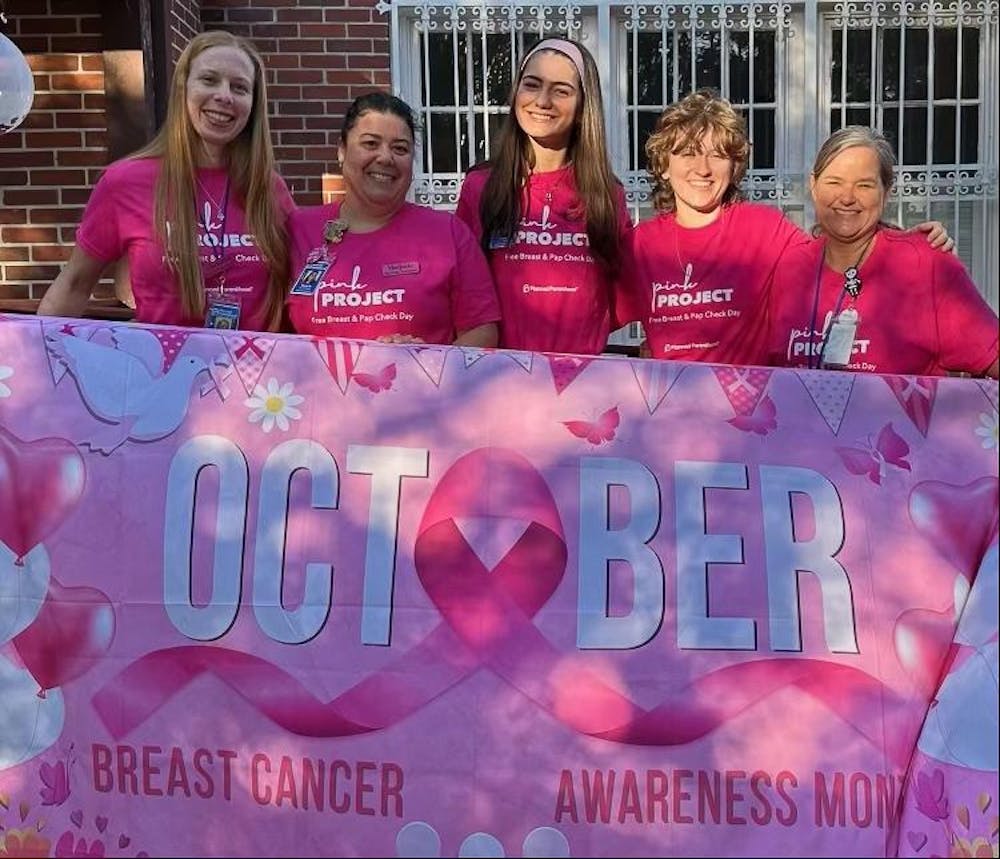Breast cancer runs in Diana Torres’ family. Her sister, a young survivor, recently recovered from the disease. Thirty-year-old Torres said that was the wake-up call she needed to start taking charge of her health.
But Torres, a behavioral therapist, is among the more than two million Floridians without health insurance.
That’s what brought her to Gainesville’s Planned Parenthood clinic Monday for the organization’s annual Pink Project Day. The event provides free breast and Pap exams at its health centers in South, East and North Florida.
“I think that every woman should be entitled to a free breast exam at least once a year, whether she has insurance or not, no matter if she's a citizen or not,” Torres said. “I just think that it's a human right.”
Michelle Quesada, a spokesperson for Planned Parenthood, said Pink Project Day makes reproductive health care more accessible for women struggling to afford it. The organization raises money from statewide donors to fund the event.
“We know that one of the biggest barriers to getting those routine life-saving screenings is the cost and the time,” Quesada said. “We definitely want to make sure that patients have an opportunity to get checked out if finances have been holding them back.”
Young women should get routine breast screenings, Quesada said, because early cancer detection can save lives.
A Washington University School of Medicine study found women born in 1990 are 20% more likely to develop breast cancer than those born in 1955. Doctors suggest women over 40 receive regular breast screenings, meaning early signs of breast cancer in younger women can go undetected. Left unaddressed for long, tumors can grow and become aggressive.
“I don’t think that college students are often thinking about getting screened routinely for breast cancer or checking themselves to make sure there aren’t any changes in their breasts,” she said. “This is just a way to be proactive.”
During a breast exam, clinicians check breasts for abnormalities, whereas a mammogram involves X-ray imaging. Healthcare professionals recommend women between 25 and 39 have their breasts examined every one to three years. Those 21 to 29 should have a Pap test — which checks for cervical cancer — every three years.
Planned Parenthood of South, East and North Florida promoted Pink Project Day in an Instagram video Oct. 7, two weeks before the event that featured breast cancer survivor Elizabeth Santiesteban, who was diagnosed at 36. She explained the importance of early screening.
“Now that I look back on it, it’s something that could happen to anyone at any age,” she said in the video.
Contact Natalie Kaufman at nkaufman@alligator.org. Follow her on X @Nat_Kauf.
Natalie Kaufman is the business enterprise reporter and a second-year journalism major. Outside the newsroom, you'll catch her drinking too much caffeine and running.






